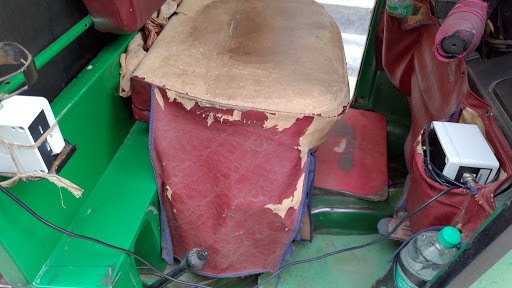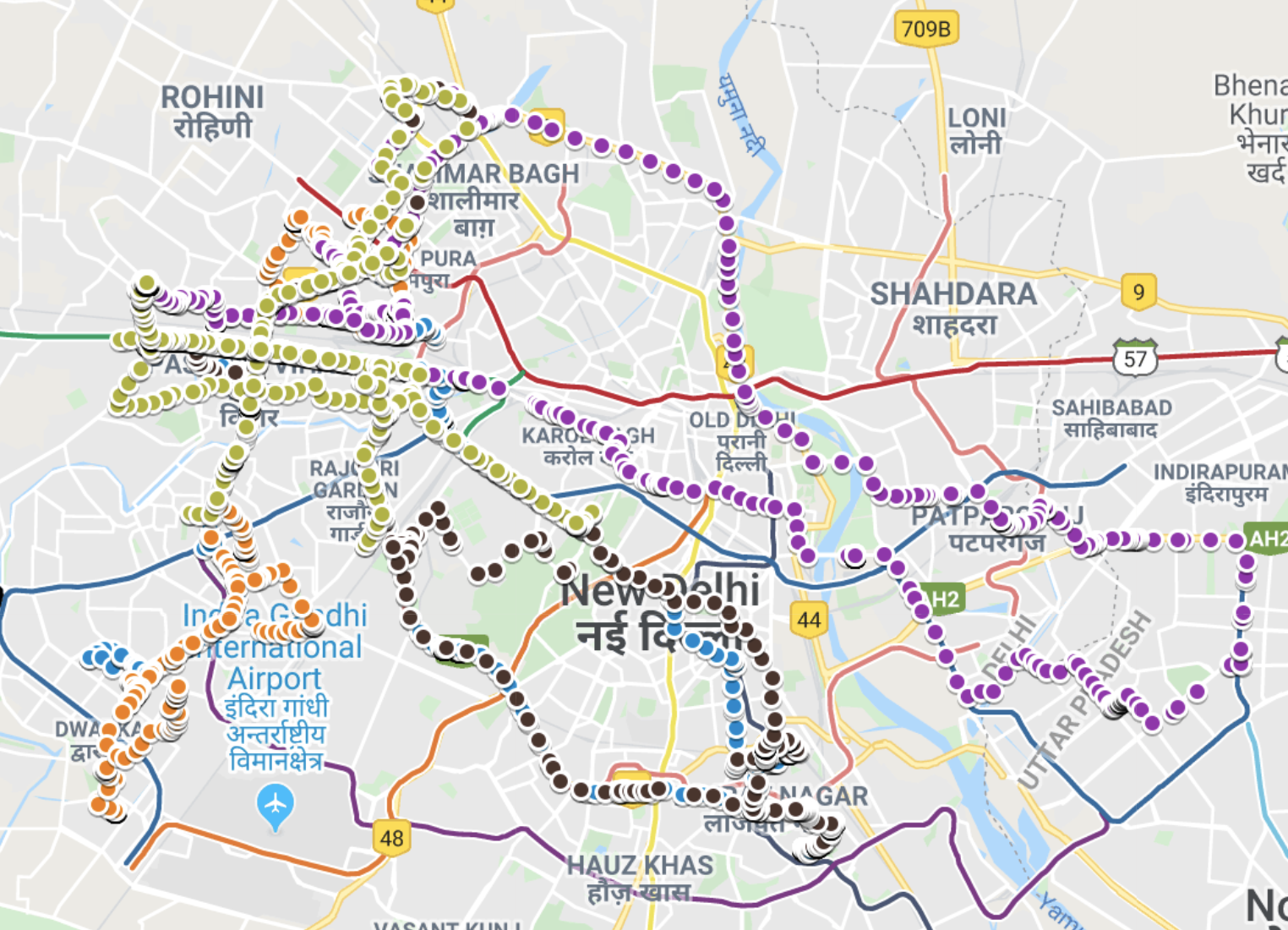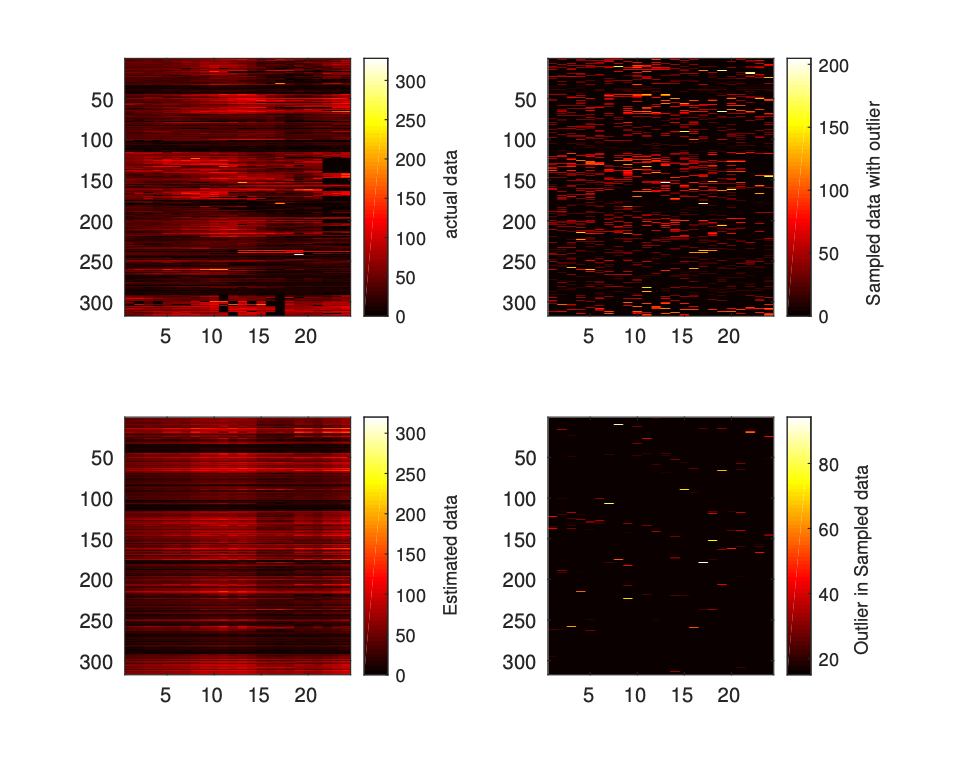 Air quality sensors installed in an auto
Air quality sensors installed in an auto
 Route covered by an vehicle mounted auto for 6 days.
Route covered by an vehicle mounted auto for 6 days.
 Given measurements in time and few nodes in the city network, evolving algorithms to complete the spatiotemporal air pollution matrix.
Given measurements in time and few nodes in the city network, evolving algorithms to complete the spatiotemporal air pollution matrix.
Objective
To create a system of vehicle-mounted sensors that performs accurate air quality sensing.
Description
We propose the creation of a dense air quality map by performing a spatiotemporal sampling using only a few moving sensors followed by the suggested matrix completion technique. This is possible as the underlying low rank and slowly time-varying structure of the air quality data can be leveraged to create models that facilitate an effective Spatio-temporal extrapolation. We claim that to obtain a dense air quality map, the cities may require only a small fraction of moving sensors as compared to static sensors. Therefore moving air quality measurement could lead to an effective strategy against air pollution and climate change.
Results
To identify the source of local pollution and its correlation with key geographical, meteorological, and local parameters (assuming pollution inventory).
To create a web portal for effective dissemination, visualization and analysis for the collected and extrapolated data.
Key Features
Lorem Ipsum is simply dummy text of the printing and typesetting industry. Lorem Ipsum has been the industry's standard dummy text ever since the 1500s, when an unknown printer took a galley of type and scrambled it to make a type specimen book. It has survived not only five centuries, but also the leap into electronic typesetting, remaining essentially unchanged. It was popularised in the 1960s with the release of Letraset sheets containing Lorem Ipsum passages, and more recently with desktop publishing software like Aldus PageMaker including versions of Lorem Ipsum.
- Collaborations
- Lorem Ipsum
- Current Status
- Lorem Ipsum
- Link to document
- Document